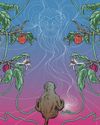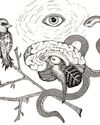
Ignorance may be bliss, but that doesn’t mean we should celebrate stupidity. Ignorance has never been a good excuse, but it is even less so today, when anyone with a question can simply google an answer. How much more do we expect of our experts when even a schoolchild has access to the vast storehouse of human knowledge? Even in this age of participation trophies, we would be shocked if the Nobel committee decided to award a prize to a team of scientists whose research was a complete failure, regardless of how many years they’d worked on it. The case is, however, quite different in philosophy, where Socrates (470-399 BC) is celebrated for an odd claim to fame: “The one thing I know is that I know nothing.” Why in the world would we continue to venerate Socrates as one of the greatest thinkers in the history of philosophy when he admits to being a complete ignoramus?
We should, of course, keep in mind that Socrates’ ignorance did not go over so well with his contemporaries. They were so frustrated by his philosophical investigations that they sentenced him to death. During his trial Socrates claims that he pursued wisdom at the expense of all his other responsibilities, and he appeals to his poverty as a validation of his professional integrity. Callicles, one of Socrates’ most ruthless critics, was less than impressed by this attempt at defending the philosophic life: “When I see philosophy in a young lad I approve of it,” begins Callicles, before unleashing his rebuke, “But when I see an elderly man still going on with philosophy and not getting rid of it, that is the gentleman, Socrates, whom I think in need of a whipping” (Plato, Gorgias 485c-d).
This story is from the {{IssueName}} edition of {{MagazineName}}.
Start your 7-day Magzter GOLD free trial to access thousands of curated premium stories, and 9,000+ magazines and newspapers.
Already a subscriber ? Sign In
This story is from the {{IssueName}} edition of {{MagazineName}}.
Start your 7-day Magzter GOLD free trial to access thousands of curated premium stories, and 9,000+ magazines and newspapers.
Already a subscriber? Sign In

Anselm (1033-1109)
Martin Jenkins recalls the being of the creator of the ontological argument.

Is Brillo Box an Illustration?
Thomas E. Wartenberg uses Warhol's work to illustrate his theory of illustration.

Why is Freedom So Important To Us?
John Shand explains why free will is basic to humanity.

The Funnel of Righteousness
Peter Worley tells us how to be right, righter, rightest.

We're as Smart as the Universe Gets
James Miles argues, among other things, that E.T. will be like Kim Kardashian, and that the real threat of advanced AI has been misunderstood.

Managing the Mind
Roger Haines contemplates how we consciously manage our minds.

lain McGilchrist's Naturalized Metaphysics
Rogério Severo looks at the brain to see the world anew.

Love & Metaphysics
Peter Graarup Westergaard explains why love is never just physical, with the aid of Donald Davidson's anomalous monism.

Mary Leaves Her Room
Nigel Hems asks, does Mary see colours differently outside her room?

From Birds To Brains
Jonathan Moens considers whether emergence can explain minds from brains.